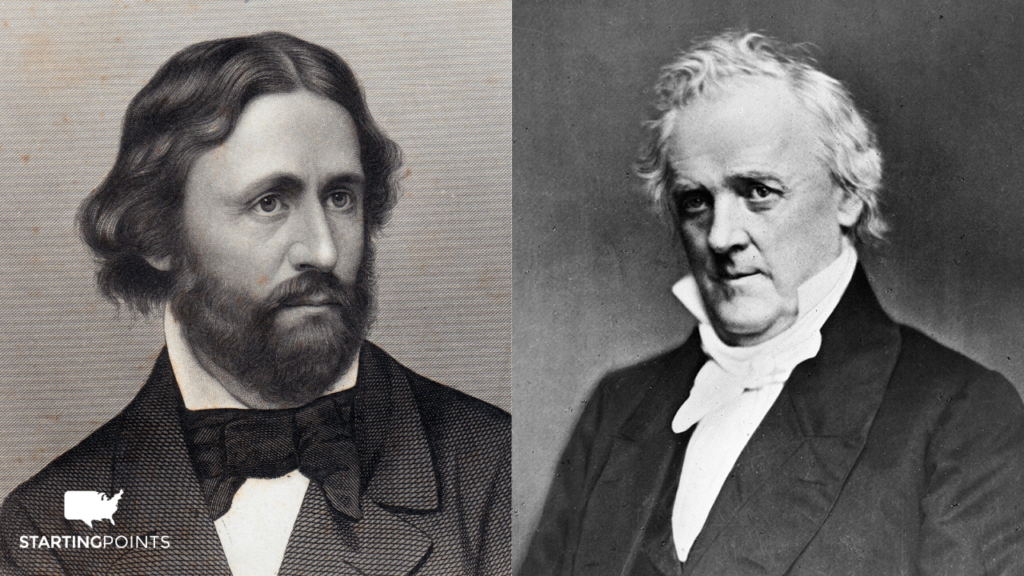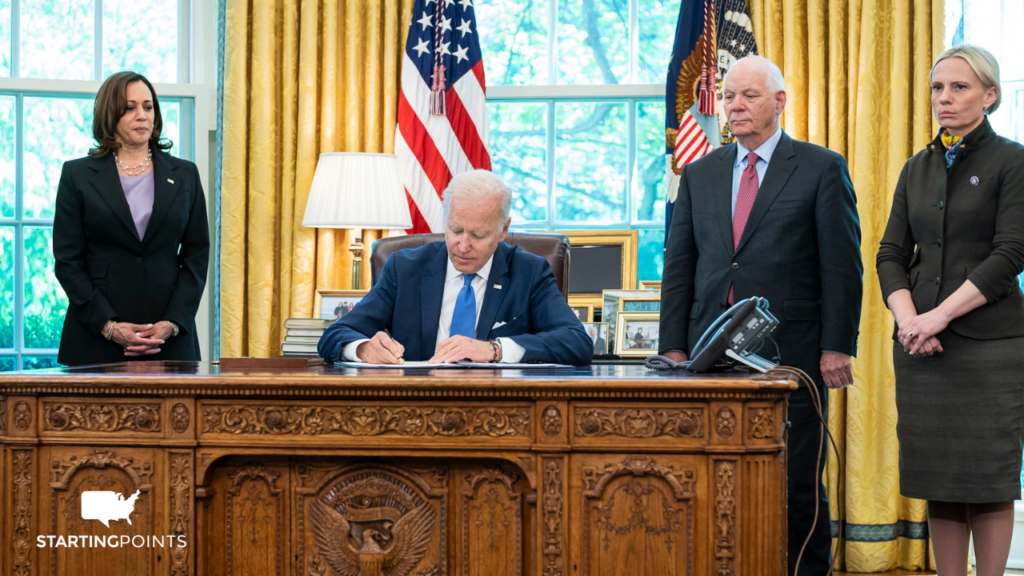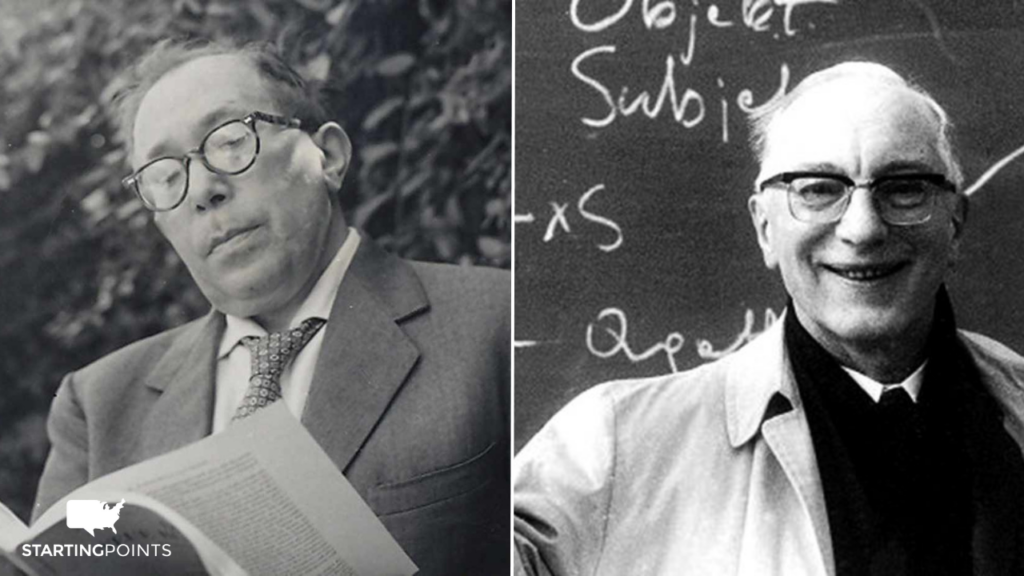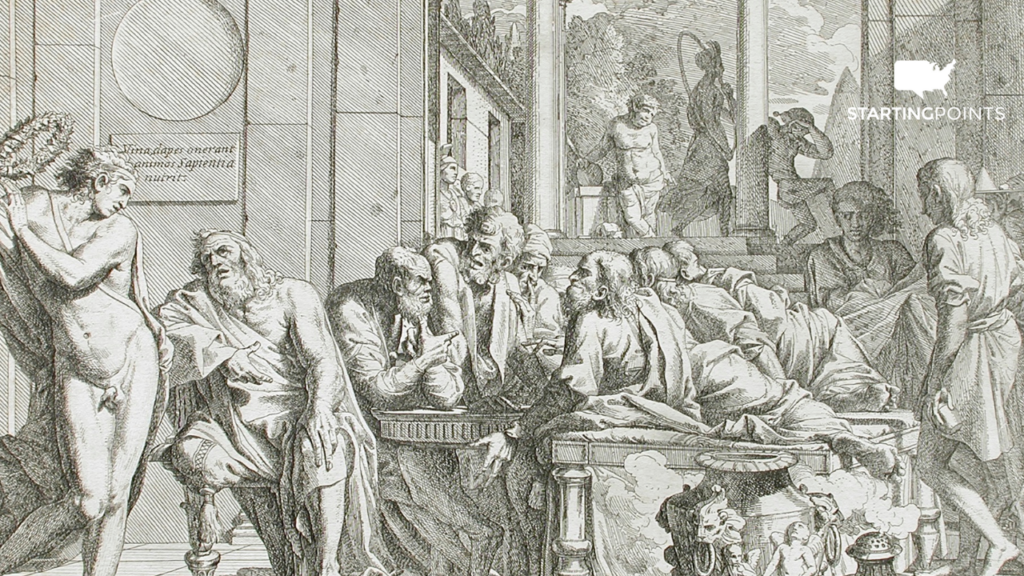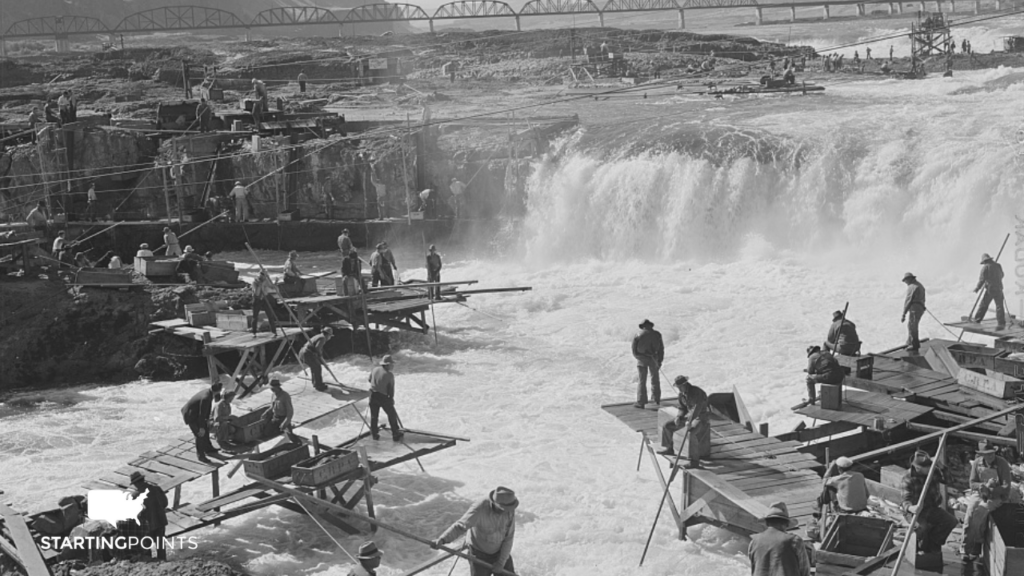The election of 1856 was the most violent peacetime election in American history. For the first time, a national political party with a legitimate chance to win the presidency campaigned on an anti-slavery platform, putting a fright into Southern politicians, the slave owners they represented, and their Northern sympathizers. After decades of blustering about secession […]
Latest Articles
A Defense of American Constitutionalism
The following is a review of Dennis Hale and Marc Landy, Keeping the Republic: A Defense of American Constitutionalism (University Press of Kansas, 2024). In one of the less-noticed aspects of his State of the Union address, President Biden announced his elimination of the requirement that Federally-backed mortgages be accompanied by title insurance. Instead […]
Teaching Beyond Ideology: How Voegelin and Strauss can save the American classroom
Teaching college students today about the significance of the American principles of freedom, equality, and constitutionalism is an uphill battle against the rise of STEM (science, technology, engineering, and mathematics) at the expense of the humanities and social sciences, the bureaucratization of the classroom with its plethora of non-pedagogical mandates, and — perhaps most difficult […]
Plato’s Legacy in Eighteenth-Century Western Politics
“. . . I amused myself with reading seriously Plato’s republic. I am wrong however in calling it amusement, for it was the heaviest task-work I ever went through. I had occasionally before taken up some of his other works, but scarcely ever had patience to go through a whole dialogue. while wading thro’ the […]
Durability and Duress: Inter-Tribal Kinship and Indian Gaming Capitalism
“I want . . . salt, and pepper, for the old people.”— Red Cloud Kinship is an Indigenous cultural tradition. It is also a political practice. Indigenous societies and nations withstood colonization for centuries by wielding the political power of kinship. Inter-Tribal kinship alliances prevented the total annihilation of Indigenous peoples during the colonial and […]

